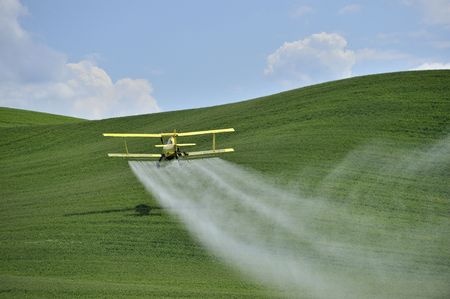The use of airplanes for spraying anti-mosquito pesticides may increase the risk of children developing autism and developmental delays.
 New research presented at the Pediatric Academic Societies 2016 Meeting in Baltimore, Maryland, follows the identification of a swampy region in central New York in the US where health officials use airplanes to spray pyrethroid pesticides each summer.
New research presented at the Pediatric Academic Societies 2016 Meeting in Baltimore, Maryland, follows the identification of a swampy region in central New York in the US where health officials use airplanes to spray pyrethroid pesticides each summer.
This pesticides’ role is to target mosquitoes that carry the eastern equine encephalitis virus, which can cause swelling of the brain and spinal cord.
Anti-mosquito pesticides increased risk by 25 per cent
However, it has been found that children living in postal (ZIP) codes in which aerial pesticide spraying has taken place each summer since 2003 were approximately 25 per cent more likely to develop autism or developmental delay than those in postal codes using other methods of pesticide distribution. These other methods included manually spreading granules or using hoses or controlled droplet applicators.
Research pointing at pesticides in the development of some cases of autism is not new. Dr Steven Hicks, assistant professor of paediatrics at Penn State College of Medicine and lead investigator of the new study, said: “Other studies have already shown that pesticide exposure might increase a child’s risk for autism spectrum disorder or developmental delay.
“Our findings show that the way pesticides are distributed may change that risk.”
He added: “Preventing mosquito-borne encephalitis is an important task for public health departments. Communities that have pesticide programs to help control the mosquito population might consider ways to reduce child pesticide exposure, including alternative application methods.”
Communities warned to stay indoors
When spraying occurs communities are understood to be warned to stay indoors and to cover areas where children play, including gardens and play equipment.
Dr Hicks and his team are understood to want to replicate the study in other areas around the US that use similar spraying methods. Future studies would involve looking at the blood/urine of children with autism or developmental delay in those areas to see if they have increased pesticide metabolites.
The new study is entitled ‘Aerial Pesticide Exposure Increases the Risk of Developmental Delay and Autism Spectrum Disorder’.
Published: 2 May 2016















